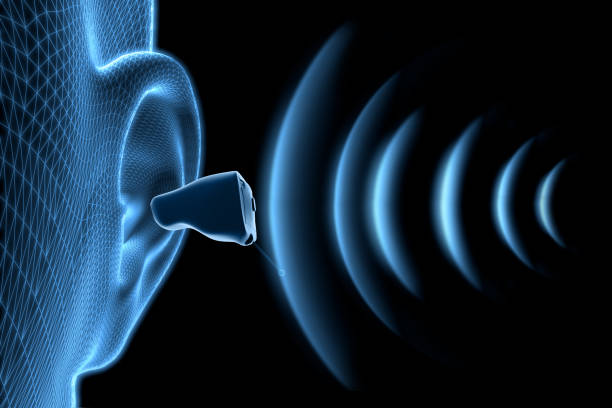Every evolution in audio in recent decades has been a redefinition of how we enjoy sound-from 'fully immersive' surround sound systems to noise-cancelling headphones, every step that came along further perfected the way we listened to music, podcasts, or other forms of audio content. Still, one innovative development on the horizon will surely change the face of this entire industry-neural headphones.
By name, Neural Headphones are a pair of headphones that involve the brains to deliver the sound in a personal and much more immersive way compared to regular headphones.
While normal headphones rely on producing sound waves towards your ears, neural headphones do it all the other way around: they scan the brain for signals and then adjust the sound experience based on feedback from your brain. What this does, projecting a pattern for the future, is attempts to make the listener and the sound much more connected and intimate, really pushing the bounds of audio personalization.
While normal headphones rely on producing sound waves towards your ears, neural headphones do it all the other way around: they scan the brain for signals and then adjust the sound experience based on feedback from your brain. What this does, projecting a pattern for the future, is attempts to make the listener and the sound much more connected and intimate, really pushing the bounds of audio personalization.
How Do Neural Headphones Work?

The underlying technology in neural headphones involves decoding electrical activity in your brain, on the basis of BCI technology. Inside the headphones, small electrodes track how your brain responds to a specific sound or audio frequency; then, based on that input, the headphones self-correct in real time.
For instance, if your brain seems tired or annoyed with a certain track or style of music you are playing, the neural headphones will dynamically change volumes, frequencies, or even introduce pleasant melodic sounds to agree with the mood of your brain. Extremely customized audio like this lets users take in favorite audio content in ways that were previously unimaginable.
Custom Sound for Each Listener
What's unique to these neural headphones, however, is the provision of a personalized listening experience. Everyone has uniquely different auditory anatomy; different people also like different sounds and process those sounds through their brains in very unique ways.
Traditional headphones always leave you with one-size-fits-all for the sound profile, and even advanced sound equalizers cannot quite match the distinctive way that your brain will process sound.
Traditional headphones always leave you with one-size-fits-all for the sound profile, and even advanced sound equalizers cannot quite match the distinctive way that your brain will process sound.
Neural headphones solve this by taking personalization to the very next level. They adapt themselves in real-time to your personal audio preferences so that music, or any other audio content for that matter, is heard exactly the way your brain would like it. Whether you are an in-bass lover or crystal-clear treble, sound quality will turn dynamic and dynamic hence improving your auditory experience.
Improved Focus and Relaxation
Apart from the pure value addition of pleasure, neural headphones may also play a very serious role in mental health care by tuning into one's brain to provide sounds intended to relax or energize the mind with regard to when the user wants to focus, take a rest, or sleep better.
For instance, a person working in a loud environment cannot focus. That is when the neural headphones intercept the mental strain and start playing tones that help in concentrating by simply canceling the distracting noises.
On the other hand, if someone wants to relax, neural headphones can produce sound patterns appropriate for an instantaneous phase of the brain and, this way, calm down the mind and rest the body.
On the other hand, if someone wants to relax, neural headphones can produce sound patterns appropriate for an instantaneous phase of the brain and, this way, calm down the mind and rest the body.
Possible Use Cases
Applications for neural headphones are immense and go way beyond personal entertainment. A few such use cases where these headphones can bring in great impact include:
- Therapeutic Application: The headphones can serve therapeutic purposes by generating sound that may help to alleviate ailments like anxiety, depression, and insomnia.
- Gaming: Enrich players with rich and unique soundscapes to plunge them into virtual worlds more deeply.
- Fitness and meditation: Neural headphones can detect the very moment in which, during exercises or meditation, your brain reaches a state of tiredness. It readjusts the sound with the needed motivation to keep you on track or in a state of relaxation. Productivity: As mentioned, neural headphones can create a more focused work environment through sound delivery that enhances concentration and creativity by filtering out distracting noises and adjusting audio input for maximum productivity.
Challenges Ahead

While this might be a very promising invention, neural headphones have many more challenges that it must cross before they can finally find their place in the mainstream. Key concerns include privacy linked to brain data use and high costs with such advanced technologies. Still, the biggest development regarding whether this kind of headphones will read and respond appropriately to one's brain signals is something which will take quite a while longer from a hardware and software perspective.
The Road Ahead
That being said, the future is bright for neural headphones. Inasmuch as the audio technologies remain within their infancy stage, it is by no means beyond the woods to expect other further inventions on how we both listen to and interact with sound.
Probably, neural headphones are one of the most serious efforts to enter the future where audio content would not be simply heard but deeply personal and emotional levels experienced. The introduction of neural headphones is about to shake the world of technology, offering completely new possibilities of influences and improvements regarding the areas of entertainment, well-being, and productivity.
Probably, neural headphones are one of the most serious efforts to enter the future where audio content would not be simply heard but deeply personal and emotional levels experienced. The introduction of neural headphones is about to shake the world of technology, offering completely new possibilities of influences and improvements regarding the areas of entertainment, well-being, and productivity.
The neural headphones will eventually revolutionize the whole concept of sound enjoyment, making it more personal and interactive. Once technology gets further advanced, developing a brain-computer interface can make such futuristic devices become a part of our lives. Further, keep an eye on this exciting development of audio technology-your next headphones may read your mind.






